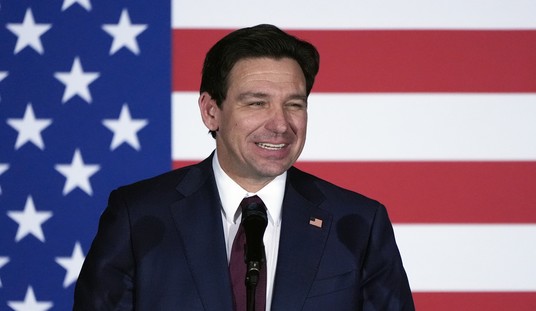During a recent dinner in Amman, Prime Minister Fayez Tarawneh of Jordan talked about me at some length, citing my PJ Media article on Israel being in a good strategic situation. Apart from the name-calling, insults, and snorting, he could not refute one point I made. In fact, I think he knows that everything I wrote is true. And that’s what scares him and makes him angry.
What particularly upset him was my point that a Sunni-Shia conflict would displace the Arab-Israeli conflict. Jordan, of course, is caught in the middle, being a Sunni country fearing nearby Iran, Syria, and Lebanon, all ruled by Shia elements allied with Iran.
But I think his attacking me was most unsporting. King Hussein read my articles years ago on a regular basis and I have had excellent relations with some members of the royal family and high-ranking Jordanian officials. I even advocated the Saudis and other oil-producers’ plan to let Jordan into the Gulf Cooperation Council (GCC) and give Amman $1 billion.
Fayez, baby, don’t be mad at me for passing along the bad news! And if there’s anything I can do to help Jordan not be taken over by either revolutionary Shia Islamists who will want to put you up against a wall and shoot you, Sunni Islamists (most likely the Muslim Brotherhood) who will want to put you up against a wall and shoot you, or al-Qaeda which won’t even bother with the wall, let me know.
Also, we do have a spare guest room and you can be here within three hours by car.
In a similar vein, my good friend David Gerstman points out that a Palestinian leader given a New York Times op-ed to attack Mitt Romney for attributing Palestinian economic problems to cultural issues was at the center of a corruption scandal four years ago.
Mr. Gerstman put it this way:
“The other day, the New York Times added the oddest critique to its campaign, Munib Masri’s op-ed “Occupation, Not Culture, Is holding Palestinians back”:
As one of the most successful businessmen and industrialists in Palestine today (there are many of us), I can tell Mr. Romney without doubt or hesitation that our economy has two arms and one foot tied behind us not by culture but by occupation.
It’s hard to succeed, Mr. Romney, when roadblocks, checkpoints and draconian restrictions on the movement of goods and people suffocate our business environment. It is a tribute to the indomitable spirit of our Palestinian culture that we have managed to do so well despite such onerous constraints.
“But as Barry Rubin pointed out four years ago in a column about Masri called “None Dare Call it News Coverage”:
Critics say some of the profits were made possible by a lucrative telecommunications monopoly the company held for several years.
We are not told from whence this monopoly came—from the PA. The word corruption is never mentioned. Such a lack of curiosity about the sources of his wealth does not accord with journalistic practices in covering other stories.
Indeed, the story of the telecommunications monopoly is one of the best-known stories of corruption among Palestinians. How PA and Fatah factions competed over the loot, how Arafat intervened directly in the issue.
In other words, if there was an exhibit of the problems Palestinian culture presented to the development of a functioning economy, Munib Masri would be a prime candidate. No doubt the editors of the New York Times don’t expect its readers to know Masri’s background; maybe they don’t either.








Join the conversation as a VIP Member